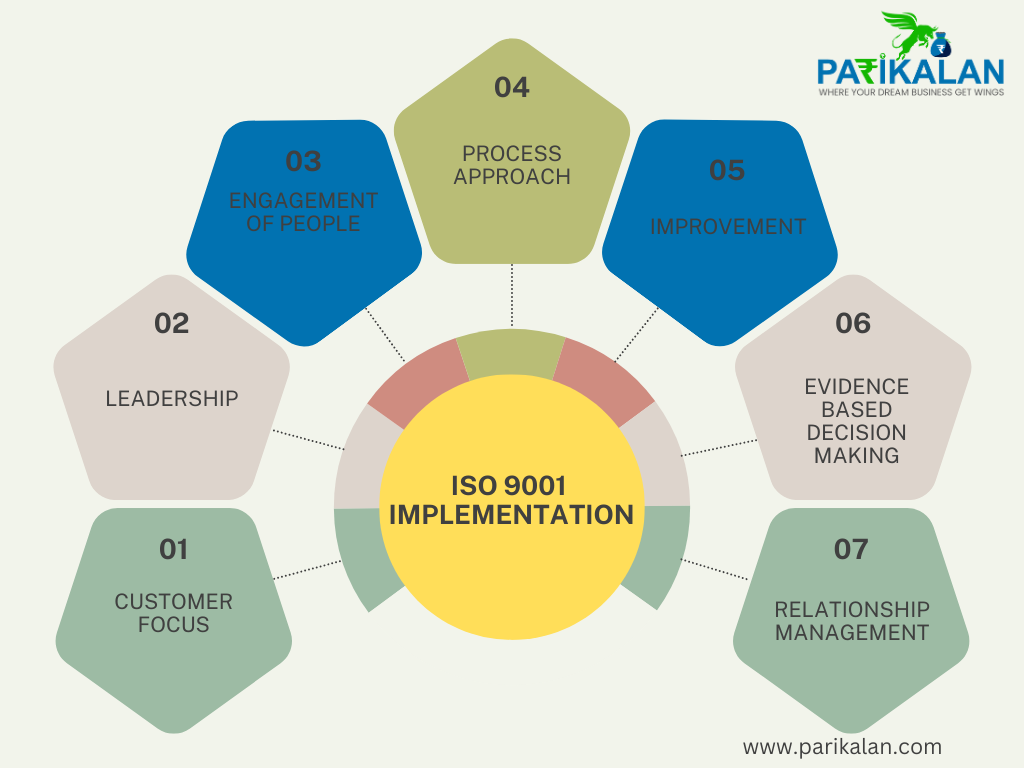Proven Leadership Strategies for Successful ISO 9001 Implementation
In the ever-changing environment of business in the present, the highest standards of customer service and quality are the norm. In the present business world, ISO 9001 certification stands as a sign of quality. The internationally acclaimed standard defines the prerequisites to establish a quality management system that enables companies to exceed or meet what they expect from their clients and boost overall performance. ISO 9001 implementation involves different aspects like the procedures and processes engagement of employees. The most important aspect is the unwavering commitment from management and their active participation throughout the entire process.
Get Business Development Kit
Role of Leadership in ISO 9001 Implementation
Effective leadership is the foundation of every successful ISO 9001 implementation. Leadership sets the stage, sets the priorities, and creates an environment of quality within the company. Let’s take a closer review of the crucial leadership role in ensuring ISO 9001 compliance and reaping the numerous benefits that it brings:
- Establishing the Vision and Goals: Leadership is an important aspect in establishing a clearly defined path to high-quality products and services, and making it compatible with the organization’s goals and goals. By promoting the adoption and application of the ISO 9001 standards, leaders communicate their determination to provide top-quality products or services as they ensure that continual improvement and customer satisfaction is on top of the list for their corporate goals.


Role of Leadership in ISO 9001 Implementation
- Setting up a Quality Culture : A well-designed quality management system can be a huge success in a workplace that embeds quality into company culture. Leaders need to create the environment to be dedicated to quality at every level and promote accountability, collaboration and a constant pursuit of excellence. By showing these values and creating an environment flexible to changes, managers can encourage employees to adopt the principles that are outlined for ISO 9001 implementation.
- Offering Support and Resources Implementing: ISO 9001 requires adequate resources such as financial investments as well as training programs and a technological infrastructure. Leadership is a key factor in the allocation of these resources making sure that teams have the equipment and resources to implement and keep this quality system efficient. Furthermore, leaders need to be active in interacting with their employees by providing direction and support, while also eliminating any obstacles that hinder effective implementation.
Are You Looking To Enhance Your Business Credibility And Quality Standards ?
Role of Leadership in ISO 9001 Implementation
- Leadership by example : Effective leadership isn’t just about dictating from the top, it’s about demonstrating leadership. Leaders who display a real commitment to quality, dedication to procedures, and a commitment to continual improvement create confidence and inspire employees to follow in their footsteps. Through active participation at ISO 9001 activities, such as internal audits, management reviews and corrective actions, managers emphasize the importance of accountability and compliance throughout the company.
- The continuous process of improvement: ISO 9001 emphasizes the idea of continuous improvement as a key element for quality assurance. In this regard, leadership plays an important role in creating the culture of continuous learning and development that is where information, experiences learned and best practices are taken into consideration and integrated into daily operations. Through encouraging experimentation, risk-taking and flexibility leadership can pave the way for continuous improvement and competitiveness in the market.
- Monitoring compliance and Certification : The ultimate requirement to obtain ISO 9001 certification rests with the management team. The leadership team has to oversee the implementation of process and keep track of development and make sure that the business is in conformity with the standards that are part of ISO 9001. This means regular reviews and fixing any issues, and cooperating with certification organizations to get and maintain ISO 9001 certification. Through demonstrating their commitment to superior management systems they increase trustworthiness of the business and also its image and capability to be competitive.
Documents Required for Applying ISO 9001 Certification

Company / Service Govt. Registration Proof

Valid Letter Head including Address

Quality Manual

Internal Audit/MRM
Conclusion:
In the end, effective leadership is the key to the success of ISO 9001 implementation, driving organizations to be committed and creating sustainable quality management practices. Through clear and lucid communication, and a proactive approach leadership, teams are encouraged to adopt the tenets of quality management and create an environment that is constantly improving.
As proven by Parikalan Consulting OPC Pvt. Ltd. Bahadurgarh, Haryana Their extensive services do not only include technical expertise, but also leadership assistance, helping companies towards ISO 9001 certification with confidence and effectiveness. The commitment to solid leadership throughout the entire procedure of implementation does not just ensure compliance but also creates an atmosphere of excellence, which propels companies toward long-term success as well as customer satisfaction.

